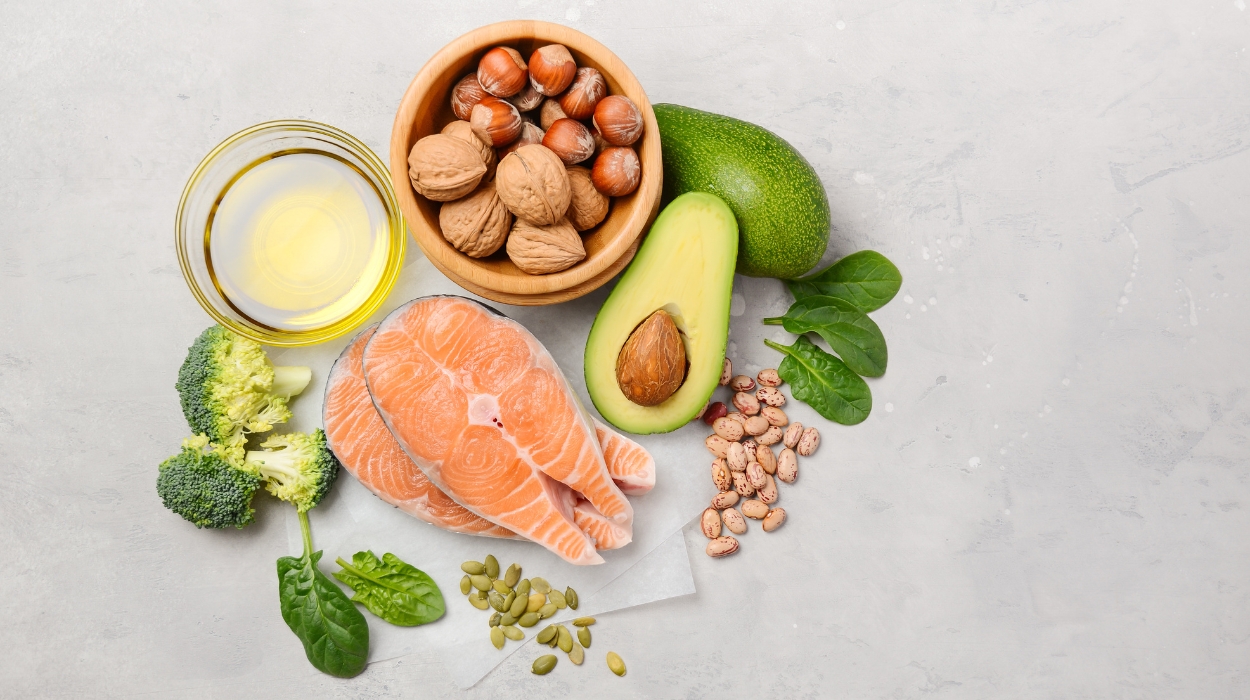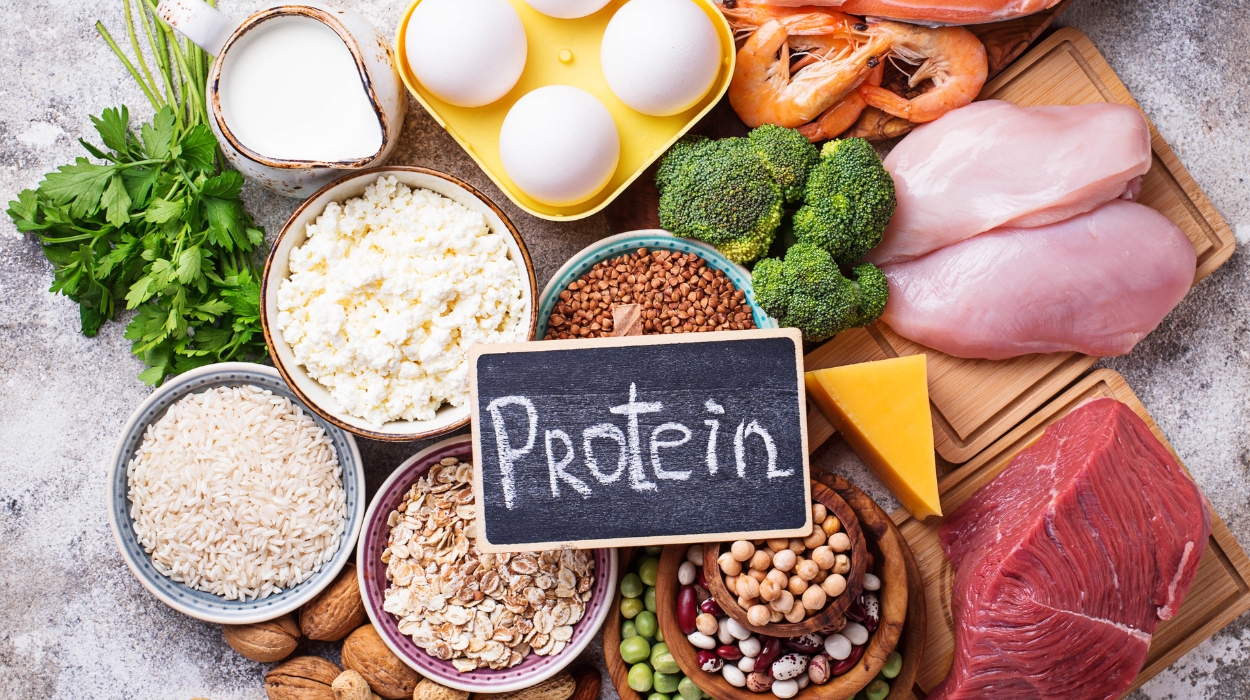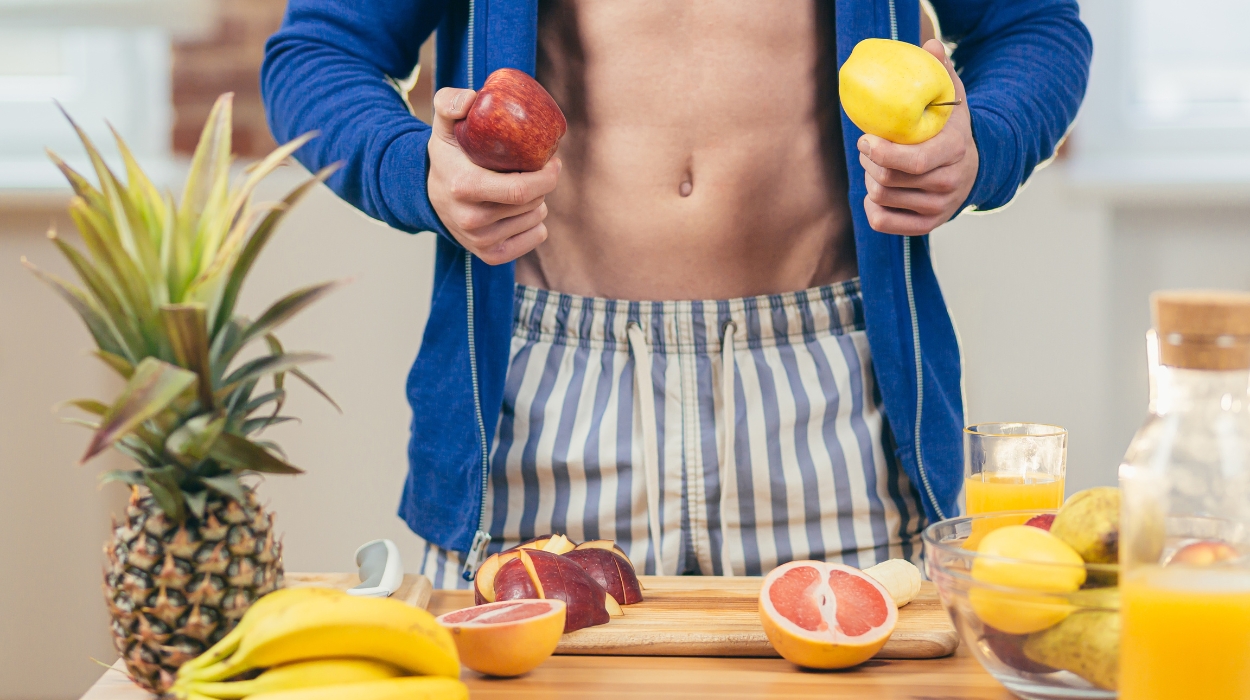If you want to get shredded, the best diets to follow aren’t just about eating less but eating smarter. You need to create a calorie deficit — this involves consuming fewer calories than you burn. However, you still need to get enough protein and nutrients to support muscle growth.
To help you choose the best diet to get shredded, this article addresses five diets that are backed by science. You can try several to find the best one, or even take a few tips from each. Let’s get started.
Best Diet To Get Shredded
Five diets that can contribute to your weight loss and muscle-building goals are the following:
- Anti-inflammatory diet.
- Mediterranean diet.
- High-protein diet.
- Mayo Clinic diet.
- Vegetarian diet.
The Five Best Diets To Get Shredded With
With so many different versions of a get-shredded diet being hyped online, it can be hard to choose the best one for you. Some diets may be too restrictive or too complicated, making them hard to stick to, and the worst ones don’t even allow enough nutrition. These five are some of the best we found.
Anti-Inflammatory Diet

The anti-inflammatory diet[1] is more of a general approach to eating than a specific diet. The goal is to remove foods that can cause inflammation, like processed sugar,[2] refined grains, and alcohol. You’re encouraged to eat foods with anti-inflammatory properties, including fruits rich in vitamin C[3] and antioxidants.
An anti-inflammatory diet can help your body store less fat and enhance hormone production.[4] This can help you create hormones like testosterone and human growth hormone to build muscle. The antioxidants can also reduce oxidative stress,[5] which can help prevent damage and aging.
Mediterranean Diet
The Mediterranean diet is inspired by the traditional eating patterns of the people living in the Mediterranean region, such as Greece, Italy, Spain, and France. People following this diet focus on fruits and vegetables, whole grains, fish, and poultry. The diet usually avoids red meat, processed foods, and sugar.
A Mediterranean diet is high in fiber, antioxidants, and healthy fats and is actually a subclass of the anti-inflammatory diet. It’s been shown to help reduce inflammation.[6] This diet is highly nutritious, but you need to make an effort to consume plenty of protein to support muscle-building goals.
High-Protein Diet

A high-protein diet[7] can vary in the amount of protein, carbs, and fat that it provides, but a common ratio is 40% protein, 40% carbs, and 20% fat. This diet can also include protein supplements, such as whey, casein, soy, or pea protein powders, to help you meet your protein needs.
A high-protein diet can help you maintain and increase your lean muscle mass, which burns more calories than fat does, even at rest. Protein is also filling without having lots of calories, so it will help you to eat fewer calories and lose weight.
Mayo Clinic Diet
This diet was developed by the Mayo Clinic, a leading medical institution in the US, and it consists of two phases. In the first phase, which lasts two weeks, you rapidly cut out some foods that are high in calories and low in nutrients, such as sugar and alcohol. In the second phase, you spend more time building long-term healthy habits to maintain fat loss.
This cutting-meal plan is great to help people build real healthy habits, not just crash-diet and then regain the weight. It can help you lose body fat while maintaining the nutrition you need. It’s not designed to help you build muscle, but you can take the habits you learn from following the diet and use them to build muscle mass as well.
Vegetarian Diet
A vegetarian diet is a diet that excludes meat, poultry, and fish. Some vegetarians eat dairy and eggs, or only one of the two; vegans don’t eat either.
Eating vegetarian can lower your cholesterol intake and help you lose weight,[8] and it’s high in fiber and phytochemicals.[9] Phytochemicals are plant compounds with anti-inflammatory and antioxidant properties.
However, it can be challenging to get enough protein intake to support muscle growth. Luckily, there are plenty of plant-based protein powders to enjoy to make hitting your protein goals easier. Being vegetarian is rewarding for humanitarian and climate purposes, but it takes more work than other diets to ensure balanced nutrition.
Nutrition Rules For A Shredded Body
No matter what diet you follow, there are some nutrition rules that you should always keep in mind if you want to get a shredded body. These rules are based on the principles of energy balance, macronutrient distribution, micronutrient adequacy, and food quality.
First, eat fewer calories than you burn, or a calorie deficit. If you use more energy than you eat, your body will have to burn its fat stores for energy, which helps you lose fat. You can create a calorie deficit either by eating fewer calories or by burning more, or ideally, a combination of both.
You should also make sure to eat enough protein. Aim for at least 1.2 grams of protein per kilogram[10] of body weight per day, or more if you are very active or have a high muscle mass. You also want to limit your unhealthy carbohydrate and fat intake.
The best rule for weight loss, though, is to eat mostly natural and whole foods and avoid processed foods. Cooking your own food can help you keep track of what’s really going into what you eat. There’s no point spending hundreds of dollars on supplements to get shredded if you’re just sabotaging them by eating tons of sugar, salt, and oil.
Foods To Avoid If You Are Trying To Get Shredded
While there is no single list of what to eat to get shredded, some foods are best to avoid. These foods are either high in calories, low in nutrients, or inflammatory, which can hinder your progress and health.
- Sugar and sweeteners: Artificial and refined sugars are delicious but horrible for you, and they’re in nearly everything. These sweeteners have the potential to increase your appetite, which goes against weight loss, in addition to disrupting gut health. Raw sugar, or alternatives like stevia and monkfruit, are much better options for your sweet tooth, but fruit and unsweetened fruit juice are better still.
- Alcohol: Alcohol is often inflammatory, can reduce your judgment and willpower so that you make poor food choices,[11] and is often full of calories. It can also interfere with your sleep quality,[12] negatively affecting willpower, weight loss, muscle recovery, and more.
- Refined grains: Refined grains have been processed to remove most of the fiber, vitamins, minerals, and antioxidants. They have a lot of calories with few nutrients. Try eating more whole grains, like brown rice and whole wheat.
- Processed meats: Processed meats have been cured, smoked, salted, or preserved with chemicals, such as nitrates, nitrites, or sodium. They’re usually high in calories, fat, sodium, and additives, which can increase your inflammation, blood pressure, and even your risk of cancer.[13]
- Fried foods: Foods that are fried in oil usually absorb a lot of it and drip it all over your plate when they’re removed from the oil. You don’t need to add that much fat to your diet. Try air frying instead, or if you don’t have an air fryer, use the broiler in your oven to get the same crispy effect.
Other Ways To Incorporating To Get A Shredded Body Fast
Exercise Regularly And Intensely
If you want to get skinny, dieting might be enough. If you want to get shredded, you need exercise.
You should spend at least 150 minutes a week engaging in cardio activities, plus strength training, at least two days per week. You might want to exercise even more intensely than this for a shredded body. If you’re just getting started building exercise habits, though, start small so you don’t get overwhelmed.
Try Supplements
Some supplements, like high-quality fat burners, can help you get shredded faster. Look for supplements that contain nutrients like vitamins and minerals. Extra protein is especially good for shredding; this is certainly the case if you’re on a vegan or on the Mediterranean diet[14] where protein is harder to come by.
Remember that supplements aren’t magical, and they won’t give you a leaner body by themselves. For example, a metabolism booster will help you burn more calories, but without willpower and a diet plan, you might just eat more calories to compensate.
Make Healthy Lifestyle Choices
If you want a healthier body, sleep is one of the most important areas to improve. A good night’s sleep improves your willpower and energy, helping you to make good diet and exercise choices. Your muscles also recover while you sleep.[15]
Stress can also be harmful to your weight loss[16] and muscle growth. Luckily, exercise helps to manage stress, but if you’re still feeling a lot of stress and anxiety, you should try finding new ways to cope. Good ways include spending more time with friends and family, learning to meditate, or listening to music.
You should also make sure you’re drinking enough water. According to the European Food Safety Authority, drink an adequate amount of water[17] every day, about 6-8 cups — and consume extra if you’re working hard or it’s hot outside. Drinks like alcohol and soda can be dehydrating, so make sure to drink extra water if you’re drinking those.
Conclusion
Getting a shredded body is not only a physical challenge but also a mental one. You need to have a clear and realistic goal, strong and consistent motivation, and a positive and resilient attitude. It will require patience and flexibility, but it is a rewarding and worthwhile goal.
Finding the right diet for you might take some time, but we hope this article has helped you understand your options.
Frequently Asked Questions
A shredded body can be great for your health. Having mostly lean muscle can lower blood pressure, cholesterol, and blood sugar levels. But it can also be unhealthy to follow an overly restrictive diet or to overexercise, so practice moderation.
There isn’t a shortcut to a shredded body. A calorie deficit, high protein intake, and intense cardio exercises are the best methods. Supplements can help, but it will still take time and discipline.
When shredding, you should eat foods that are high in protein and nutrients and low in calories and processed ingredients. Try to eat mostly whole foods, not processed — things like fruits and vegetables, whole grains, and meat and dairy.
How to get shredded varies between people, and losing fat is not a linear process. A healthy goal is to lose one to two pounds per week.
 Evidence Based
Evidence Based
